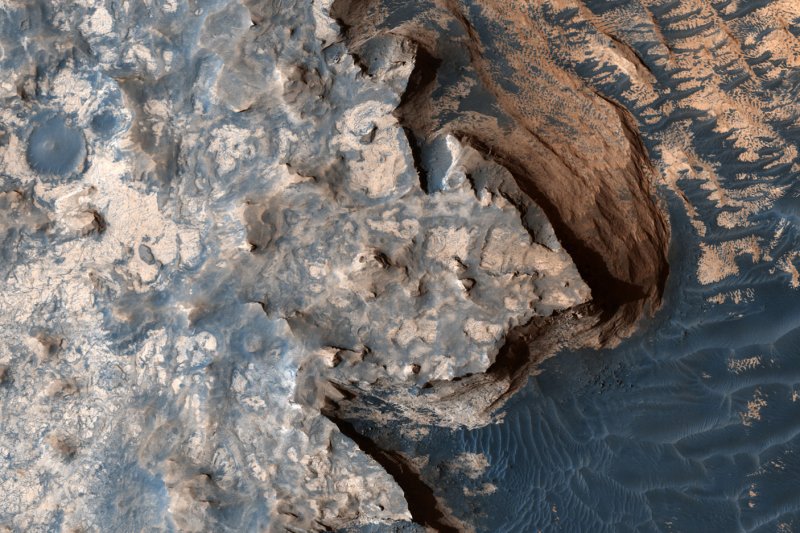According to a new letter in the journal Science, an improved understanding of the links between a planet's internal geochemistry and its habitability could improve scientists' search for alien life. Photo by NASA/UPI
|
License Photo
May 6 (UPI) -- In the search for potentially habitable worlds and alien life, scientists often focus on a planet's surface or atmosphere, but new research suggests it's what's inside that counts.
An international group of planetary scientists, geologists and chemists published a letter in the journal Science calling for more researchers to explore the role a planet's interior dynamics play in producing and maintaining a habitable environment.
Given that Earth is the only confirmed habitable world, the authors of the new letter recommend researchers begin by investigating the link between Earth's livability and the makeup of its interior.
"We need a better understanding of how a planet's composition and interior influence its habitability, starting with Earth," Anat Shahar, researcher at the Carnegie Institute for Science, said in a news release. "This can be used to guide the search for exoplanets and star systems where life could thrive, signatures of which could be detected by telescopes."
The abundance of many of the elements that coalesced during Earth's formation -- and the cooling and heating they experienced -- influenced Earth's internal chemistry, its evolution and the size of the planet's oceans. They played a role in facilitating a habitable world, but scientists aren't sure whether other combinations of elements can produce a habitable planet, too.
"One of the big questions we need to ask is whether the geologic and dynamic features that make our home planet habitable can be produced on planets with different compositions," said Peter Driscoll, Carnegie scientist.
If scientists can determine which kinds of interior compositions are most likely to produce stable, habitable conditions on a planet's surface, planetary scientists and astronomers hunting for alien life could narrow their search parameters.















